|
Birth plans have become increasingly more popular in the U.S., as people are taking more ownership in their health care. However, our culture is majorly slacking when it comes to planning for the postpartum period, or the “fourth trimester,” as some call it. Did you know that the “postpartum period” extends beyond the first 6 weeks? The word postpartum means “following childbirth.” So, the postpartum period is anytime after you’ve had a baby! For the purposes of this blog post, I’ll be talking mainly about the “fourth trimester,” or first 3-4 months following childbirth. So, why do you need a Postpartum Plan?Well, let’s compare birth and postpartum to wedding and marriage. Many people spend a LOT of time (and money!) planning and preparing for their wedding day. And, don’t get me wrong, it’s a very important, special day that you’ll remember for a long time. It’s an extremely pivotal day. One that marks the beginning of a new chapter in your life. But then… after the wedding day comes the actual MARRIAGE part, which can be surprisingly harder than you expected!
This is often the same case when it comes to birth and postpartum. People spend a lot of time planning and preparing for the birth of their baby: reading books about pregnancy and childbirth, taking a childbirth class, going to doctor’s appointments. You might hire a birth doula to make sure you have emotional and physical support during the tough parts of labor. You may create a birth plan which lays out the details of how you hope the birth will go. It’s great to plan for your birth and have ownership in how this event will go. Birth changes you. The story of how each of your children was born will affect you for the rest of your life, in ways you can’t even imagine. But then… after birth comes the actual PARENTING part, which may be surprisingly harder than you ever expected! Now, just like marriage, there are wonderful parts of parenting. But there are seasons of parenting that are very challenging. The first 3-4 months after having a baby can be exhausting, scary, lonely, draining, and overwhelming. I don’t say this to scare you. I say this so that maybe you’ll be less shocked if this ends up being your experience. The good news is that there are things you can do ahead of time to make it less exhausting, scary, lonely, draining, and overwhelming! What kinds of things can you do ahead of time to prepare for the postpartum period? Just like a birth plan, your postpartum plan will be unique to you… Your past experiences, your values, your health history, your life situation, your preferences. But here are some things I recommend you plan for: 1. Your physical recovery. Because having a baby is a BIG DEAL. Though it’s a very normal process, birth is considered to be very traumatic for a woman’s body. There’s a reason you bleed for several weeks: you have a gaping wound inside your uterus from where that amazing organ that your body created (the placenta) nourished the PERSON you grew and birthed! I cannot emphasize enough how important respecting your recovery period is. 2. Feeding your baby. This is also a big deal. Now that this little person is outside of your body, you have to figure out how to keep them alive. (No pressure!) Many people intend to keep their babies alive with human milk. And though breastfeeding is a normal process, it is also very complex. In our culture, we don’t usually witness this process throughout our lives, so it’s not always intuitive. There are many things that can potentially affect lactation. Some people plan to keep their babies alive with formula, which you may not realize is more complicated than just dumping powder and water into a bottle. You must learn to prepare it properly and safely ahead of time. 3. Caring for a newborn. Most adults have a basic idea of how to care for a newborn: feed them, change their diaper, let them sleep. But, if you’ve never cared for a newborn, there are probably a lot of things that you don’t even know you don’t know! What “gadgets” do you actually need? How do you know when your baby is hungry, tired, or wet? Why won’t the baby stop crying?!? What is the point of swaddling, and how do you do it? How do you make sure your baby’s sleeping area is safe? How do you burp a baby? Is it even necessary to burp a baby? How do you know if your car seat is properly installed and if you know how to use it properly? Why do some people “wear” their babies? And how do you know which of the 942 types of infant carriers to use? Some of these things you figure out as you go, but many can be learned about and practiced ahead of time. 4. Practical support. Caring for a baby is TIME-CONSUMING. Sometimes it seems as if they are constantly eating, pooping, peeing, and crying. It is CRUCIAL to have help lined up for the first couple weeks, at a minimum. The first 6-12 weeks is ideal, but not always possible. What you need to know is that it is impossible to maintain your pre-baby life during the first few weeks and months. This fourth trimester is a unique phase of life and should be treated as such. A woman who has had a baby should be cared for and allowed to rest, heal, and get to know her baby without having to worry about doing ALL the things. A professional Postpartum Doula is an amazing resource, but if this is not an option, think of family or friends who could help. Whether it’s bringing a meal, doing some dishes or laundry for you, or holding a baby so you can nap, don’t be afraid to ask someone to help! 5. Self-care. This has become a buzzword lately, but it actually is important. You know, the whole, “You have to put your own oxygen mask on before you can put another person’s on” thing? It’s the TRUTH! But the thing you may not know is what YOUR particular “oxygen mask” is. What is the thing that makes you feel re-energized? Or relaxed? And what do you need to do to protect your emotional and mental health? 6. Sleep. This is HUGE. So much important stuff happens in your brain and body when you’re sleeping. Sleep deprivation doesn’t affect each person to the same degree, but it is harmful to your body and can lead to things like mood swings, difficulty concentrating, weight gain, depression, anxiety, insomnia, increased risk of car accidents, and, rarely, even psychotic episodes. But, as you probably know, newborn babies don’t tend to sleep long stretches at a time! This is normal and to be expected. BUT that doesn’t mean you have to be completely sleep deprived. There are different strategies that can help parents of a newborn to get enough sleep to function and prevent exhaustion. 7. Emotional and mental health. Did you know that approximately 15% of women experience depression, anxiety, or other mental health issues after having a baby? That’s about 1 in 7! It can happen to anyone, regardless of race, socioeconomic status, or history. But there are certain factors that may put you at a higher risk. The good news is that you can potentially prevent it, or at least recognize it early and treat it before it worsens. Every person expecting a baby should learn the signs and symptoms of Depression, Anxiety, OCD, PTSD, and Psychosis. This and other information about Maternal Mental Health can potentially save relationships and save lives. So. Those are 7 things you should think about and plan for when you’re expecting a baby. Don’t forget about that fourth trimester! Your baby will need you to be at your best, and you’ll be so thankful you planned ahead. If you have specific questions about planning for the postpartum period, feel free to reach out to me at Geneva@MaternalSeasons.com or message me on Facebook!
0 Comments
Ok. Now that you know the basics of what a Postpartum Doula does, I'll share with you 20 surprising things that your Postpartum Doula might do (if you ask). Almost all of the things on this list are things that other Postpartum Doulas or I have actually been asked to do. However: Most of these are not typical tasks for a postpartum doula, and this, in no way, guarantees that all postpartum doulas will be willing to do these. I also want to add that a Doula is not a medical professional, and therefore should never do any clinical tasks or give medical advice. That is definitely out of a doula's scope. If you have a medical concern, your doula should refer you to a medical professional or point you to resources with unbiased, evidence-based information. 1. Help set up/organize baby's room before he/she is born. This can be especially helpful for first-time parents. You probably will have been given about 482 packages of diapers and 956 receiving blankets at your baby shower. You may not know how much of what you will actually need or which things you will need when. Or maybe you know exactly where you want things, but you procrastinated too long, and now you're barely even able to waddle to the bathroom. Not to worry... call your postpartum doula to ask for a "nesting assist." 2. Water your plants/garden. Because ain't nobody got time for that. 3. Accompany you on a trip to the zoo with your baby and other kids. Some might argue that this is more of a nanny task. But I think it's a brilliant idea to ask your Postpartum Doula to do this! When you literally haven't left the house for 2 weeks and your kids are bouncing off the walls and you're all losing your ever-loving-minds... You need to do this for your mental health. But getting out of the house with a baby and young kids can be exhausting and stressful (which kinda defeats the purpose of getting out of the house!) Your Postpartum Doula can help by wearing the baby and keeping him/her in the shade, while you take your big kids to do all the fun things. Or tag-teaming with the whole lunch-getting process. And then taking the big kids out while you feed the baby. Things you might not be able to do without a second set of hands and eyes! 4. Play with your dog in the yard. (Sorry, Fido, there's a new kid in town... but I know your owners still love you!) 5. Prep freezer meals before baby is born. Or this could be done when the postpartum hours you purchased are about to run out. 6. Go clothes shopping with you. Whether it's to help you find clothes for your new postpartum body, or to shop for your kids or partner, this task can take 3 times longer when you have a baby/kids in tow. Your postpartum doula can take care of baby/kids while you shop and try on clothes. And she/he can give you tips on what styles may work best with that post-baby belly (if you ask). 7. Go with you during pregnancy to add items to your baby registry. This is especially helpful for first-time parents. How are you supposed to know which of the millions of types of pacifiers to choose? And how many burp cloths do you actually need? Are you really gonna use that bottle warmer or wipes warmer? Is a video monitor worth the money? What are the latest carseat recommendations and safe sleep recommendations? How many diapers will you go through in a day? Your Postpartum Doula can give you the information to make these decisions easy, and answer questions you might not even think to ask! 8. Bake Brownies. Because sometimes you just NEED them. 9. Support you after adopting a baby. Postpartum Doulas are for anyone with a new baby, including adoptive parents! Did you know that adoptive parents can get Postpartum Depression, too? Adoption has unique challenges, and some doulas even specialize in working with adoptive families. 10. Go with you to your baby's tongue tie revision, circumcision, or other procedure or appointment. Sometimes these procedures or early appointments can be overwhelming. You may want your Postpartum Doula there to comfort you and help give you peace of mind. Or you may want your Postpartum Doula to stay with the baby during a procedure that you worry will be too difficult for you to watch. 11. Polish your silver...? Yep, I know of two Postpartum Doulas who have been asked to do this. Maybe you need it to be done in preparation for Thanksgiving or Christmas dinner? Hey, it can't hurt to ask! 12. Help you get to and from the toilet. Sometimes basic tasks like this are difficult, such as after a Cesarean birth or if you've had a severe vaginal tear or birth injury. Don't worry, your doula has seen it all and won't be phased at all by this task. 13. Help you rearrange furniture. Maybe you need to make room for that infant swing in your living room. Or maybe the room just feels too cluttered, and if you're gonna be sitting in there feeding a baby for 60% of your day, you just NEED things rearranged. This is something you should NEVER try to do yourself right after having a baby! 14. Support you while your baby is in the NICU. This can be a stressful, sometimes traumatic situation. And while the NICU staff is very supportive, there are things they just can't do for you. Your Postpartum Doula can go to your house to feed your pets, do a load of laundry, grab some stuff that you need, etc. She/he can go out and get you some decent food when you're getting sick of hospital food. Or sit with you and just LISTEN as you process the birth and express your worries/concerns. Some NICUs will allow your Postpartum Doula on the unit, so she/he can sit with you while your partner goes home to shower. And your doula can help you interpret what the doctors are saying or just help you to remember what they are saying, since you are likely sleep-deprived. 15. Sort through your pantry and fridge and throw out old/expired food. This is a task I personally enjoy doing! 16. Clean up the honey that your partner knocked over before leaving for work that's oozing all over the top shelf, because you probably shouldn't climb up on the counter top to do it right after you've had a baby. True story that happened to another doula. 17. Decorate (or take down) the Christmas tree. Not one that I've personally done, but I would LOVE this task! 18. Feed the chickens and goats. Or any other farm animal you might own. 19. Iron clothes. I've heard about a couple of doulas who were even asked to iron baby's clothes, including bibs and burp cloths! Hey, if that's what you need that day to help you feel like life is under control, I will oblige! 20. Clean up the 5 lb bag of rice that the cat ripped open in the middle of the kitchen floor. Because, sometimes, these things put you over the edge, and you just can't deal. (Another true story, told by a fellow Postpartum Doula.) So, there you go! These are just some of the many things your Postpartum Doula might do, if you ask, aside from the typical tasks she/he does. Postpartum Doula services really are catered to what YOU and your unique family needs!
If you're a Postpartum Doula... What unusual or unique tasks have you been asked to do, and did you do them? Comment below; I'd love to hear your stories! I'm so excited to announce this special offer... I have teamed up with Annie Briggs Photography, who is an incredibly talented Birth and Life Storytelling photographer. Only $325 for this package deal that includes a Fresh 48 (Newborn/Family) Session plus 10 hours of Postpartum Doula services provided by Maternal Seasons. That's HALF PRICE! Those first few days and weeks with a new baby can be one big blur... It can be an incredibly busy and exhausting time. Hiring a professional photographer to capture the memories of those first days is something I wish I had done. And having the help of a professional support person in those first few weeks can make all the difference in a mom's recovery and the family's mental/emotional health. (For more info on what a Postpartum Doula does, check out this blog post. So, here's the deal: It's only for residents of Hendricks County, IN. And there are only TWO of these offers available. So, book quickly before they're gone! Buy it for yourself or buy it for a friend/family member! (You will totally win the "Best Baby Shower Gift Ever" award.) Contact me for more info or to book this offer! Did you know that 1 in 7 women will experience a Maternal Mental Health Complication, such as Postpartum Depression? So, if you know 7 women, then chances are you know a mom who has experienced or is experiencing a Perinatal Mood/Anxiety Disorder. And the consequences of not treating things like depression and anxiety can be detrimental on mothers, babies, and families. Do you think you would know if a mom you know is depressed? It may not be so simple. She may look like the woman pictured above, crying and in obvious despair. Or she may look something like this... A mom with depression may not look sad. She may be quite skilled at keeping her sadness hidden. And, often, the sadness will come in waves, or may only be there about 50% of the time. Depression may not come out as sadness at all. Sometimes a depressed mom will look something like this...  Just kinda... Meh. Emotionless. Numb. Blah. Or even this... Yep, it's fairly common for depression to come out as anger, or even full-blown rage. She might seem like she's always mad at the world. She may not have the motivation or energy to care for her children. But, more often, she will be able to meet her baby's needs above and beyond, but not have the motivation or energy for much else. So, how might you know that a mom you know is struggling with depression? ASK HER. Then ask her again in a few days. Then again every few weeks or every few months. And not just, "Are you depressed?" Ask her how her mood has been. Ask her how she's sleeping. Ask her if she's enjoying motherhood. Ask her if she worries a lot, cries more than once or twice a week, or feels sad more than 50% of the time. Ask her if she feels lonely. Ask her if she feels more angry than usual. Ask her if she feels nothing at all. Tell her it's ok to be real with you and admit it if everything is not ok. Ask her.
Are you a perfectionist? I totally am, though you might not believe it if you saw the inside of my van or dropped by my house unannounced. Even if you’re not a perfectionist, you may still feel pressure from the rest of the world to do all the things and somehow have it all together. Being the perfect mom was subconsciously my goal for years. I know I’m not alone; I’ve talked to lots of other moms who have felt the same way. But I’m here to tell you confidently from experience: There is no such thing as a perfect mom! My “perfectmomism” all started before I ever even conceived a child. I knew I wanted to have kids in the future, and had started making mental lists of all the things I would and wouldn’t do as a mom. I wouldn’t gain extra pregnancy weight and would return to my pre-baby weight quickly and easily. I would breastfeed my babies for the entire first year, and it would be a beautiful wonderful blissful experience. I would feed my kids only organic foods, and they would eat what we’re eating and not be picky eaters (like my friends’ annoying kids). I was going to stay home with my kids, and maybe even home school them (because, “How could I possibly send my kids to those evil daycare people?!?”) My babies would all sleep through the night by three to four months because I was going to train them to do so. I would never let my house get too dirty. (“Why don’t my friends clean their sticky, smudged, food-covered walls? Do they not notice it?!?”) I would talk to and read to my babies constantly, not allow them to watch TV till they’re two, and limit TV to 30 minutes a day thereafter. I thought that if I did all of these things (and more), I would have the most intelligent, least ADHD, healthiest, most well-behaved children ever, and everyone would think I was an amazing mom and come to me for parenting advice. HA! Out of all the things listed above, I would say that maybe 3% of them actually happened. I gained 53 pounds in my first pregnancy, and now fluctuate around 10-15 pounds above my pre-baby weight. I had just about every breastfeeding issue in the book with my first baby and ended up exclusively pumping for months and later supplementing with formula. (Also, I did not enjoy breastfeeding most of the time.) I managed to feed my first baby mostly organic stuff and almost no sweets the first 2 years of his life (and ironically he’s now extremely picky and eats mostly carbs). But by my third baby, we were ordering pizza once a week and letting the kids eat cereal off the floor. I discovered that though I liked being home with my kids for the first 18 months or so, by age two it was best for everyone that they go to anywhere else for at least part of the week. Though my first baby started sleeping through the night at 12 weeks (so lucky, I know!), my second and third taught me that sleep training is a bit of a joke. Because as they grow, they will go through all kinds of random night-waking and fear-of-the-dark phases and ear infections and throwing up all over their beds and coming to our bed in the middle of the night and staying awake till 10:30 during the transition out of taking naps and I WILL NEVER SLEEP AGAIN. I could go on, but let’s fast forward nine-plus years and three kids later, as I sit here laughing at my pre-kids self! I see now that my expectations were WAY too high, and even if I “did all the right things,” there was no guarantee I’d have perfect kids and be the perfect mom. Because those goals are IMPOSSIBLE. Since becoming a parent, I have become much less judgmental of other parents, and much less judgmental of myself! Let me repeat that last part: I have become much less judgmental of myself. This is something I have to practice daily. And do you wanna hear something ironic? Sometimes I catch myself “judging my judging.” It’s a HARD habit to break! But you know what? It’s OK that I struggle with this. Perfectionism is not a totally bad thing. Yes, it can drive you to try to achieve an unattainable ideal, which can cause frustration and disappointment (and sometimes lead to depression). But it can also motivate you to meet your goals.
I am a doula. But if you had told me 10 years ago that I’d someday be a doula, I might have laughed in your face. In my mind, a doula was a "crunchy" woman who thought natural birth was the best way to have a baby, and wanted to help other women have a natural birth, too. That just wasn’t something I cared much about at the time. Though my previous view of doulas is kinda-sorta-partly true (we are varying levels of "crunchy," support ALL types of birth, and believe that interventions are useful and necessary at times), I have learned over the past few years that there is so much more to being a doula! A doula is a person who provides non-medical practical and emotional support. Most commonly, a doula offers support during labor/birth. But there are also postpartum doulas, antepartum (pregnancy) doulas, bereavement/loss doulas, abortion doulas, and end-of-life doulas. I’ve also heard of doulas who offer support for post-surgery, everyday life, siblings (during labor), divorce, family crisis, deployment, adoption/fostering, surrogacy, fertility, moving, wellness/fitness, delirium, ICU, NICU, mental health crisis, and more. It wasn’t until after I’d already had two of my babies that I heard about the concept of a Postpartum Doula. A friend of mine who owned a doula agency, told me she was adding a postpartum doula to her group. I asked what a postpartum doula was, and was floored when I heard her response. WHY had I not heard of this concept?! I would have hired a postpartum doula in a heartbeat after each of my first two kids were born! And, also… This might just be my dream job! So, what exactly does a postpartum doula do? Well, basically… I do what you’d want your mom to do after you have a baby, but… with a neutral and objective perspective and recent education/training on all things postpartum. As a doula, I would come to your home and do the dishes, laundry, and other things you don’t have time for when you’re feeding a baby every two hours and trying to recover from a MAJOR physical and emotional life event. I care for your baby so you can get a solid three hours of sleep after being up literally all night. I answer questions like, “Is this rash/crying/poop/pain/(insert 852 other possible things) normal?” I listen. I give you assurance that you’re doing a great job. I guide you through the learning curve of breastfeeding and/or pumping and/or bottle feeding. I bring you a sandwich while you’re sitting on the couch feeding your baby for what seems like six hours straight because all you had time to do between the last few feedings was go to the bathroom, change your underwear, and quickly brush your teeth. I ask you about your birth. I listen. I do my best to put the towels and dishes away the same way you do it (this is important for my fellow OCDers). I look around for little things that need to be done, so that you don’t have to think about it. (Like refill the baby wipes container, change the toilet paper roll, refill your water bottle, and let the dog back in.) I listen. I offer non-medical advice & suggestions, but only when asked, and always in a non-judgmental and unbiased way. I watch for signs of postpartum depression, because sometimes it’s not so obvious. I ask how you’re feeling physically and emotionally. And… I LISTEN. The amount of support a postpartum doula provides differs, depending on each individual family’s needs. Some postpartum doulas offer overnight care. (This will cost you more money, of course. But believe me, there will probably be times in those early months that you’d be willing to pay ANY amount for a good night’s sleep!) Most postpartum doulas provide daytime care, too. This could be anywhere from about 3 hours to about 6 hours, depending on the family and the doula’s availability. It could be daily, three days a week, two days a week, or any number your family desires! Often families will want more support in the first few weeks, then want it to taper off by the 3 or 4 month mark. Some families might only need support that first night home from the hospital, when they’re going from having nurses constantly “on call” to care for them and answer questions to suddenly being spit out into the world to do this big new scary parenting thing all alone. Some families (like those with twins/multiples) might want some amount of support until the 6 month mark, or whenever the parents begin to get SOME precious sleep at night. One of the most important things to know about postpartum doulas is that we are skilled at becoming attuned to your individual family’s needs. We’ll work together with you before services begin to figure out how much and what type of support you might need. And we’ll be as flexible as possible if changes need to be made regarding your care. I love being a doula, and I especially love it when I get to work as a postpartum doula. Being allowed into a family’s life during such a pivotal and vulnerable time is amazing. I wish every family could have a postpartum doula after having a new baby. Who knows – maybe someday doulas will be a routine part of our healthcare system! But until then, I’ll do my best to help one family at a time.
|
AuthorWrite something about yourself. No need to be fancy, just an overview. Archives
January 2018
Categories |

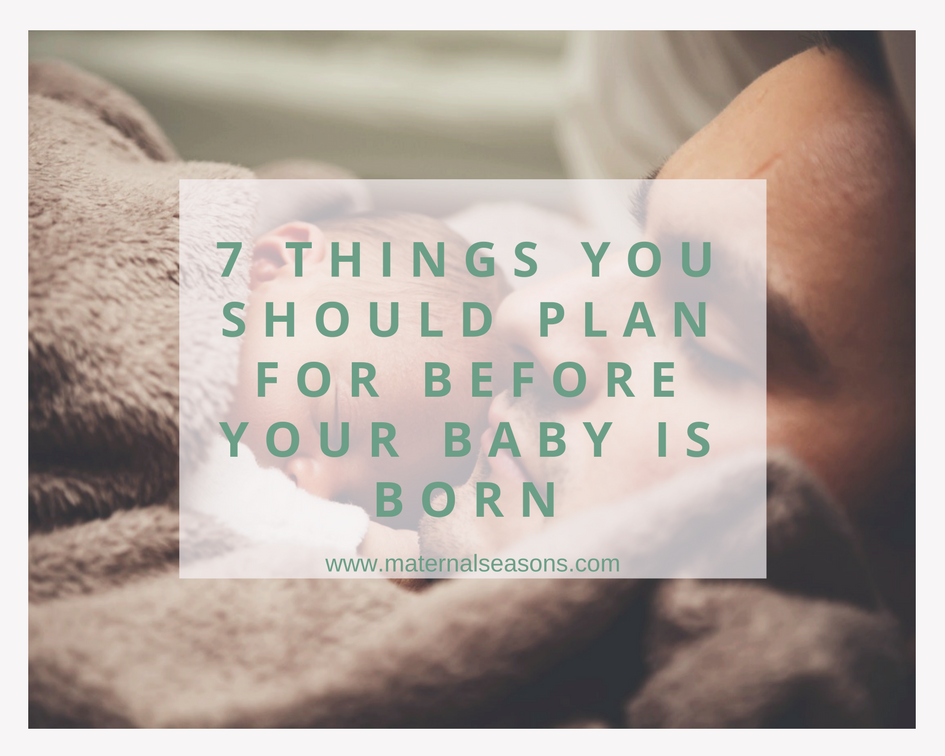
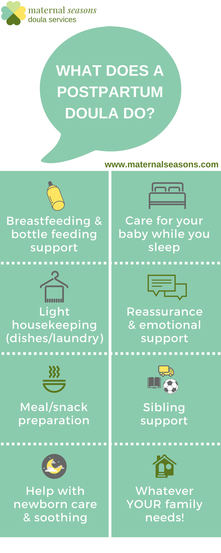
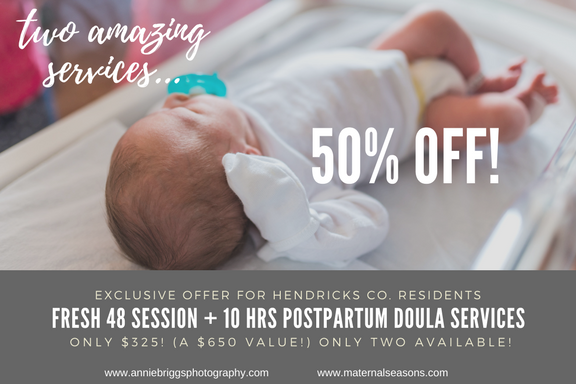




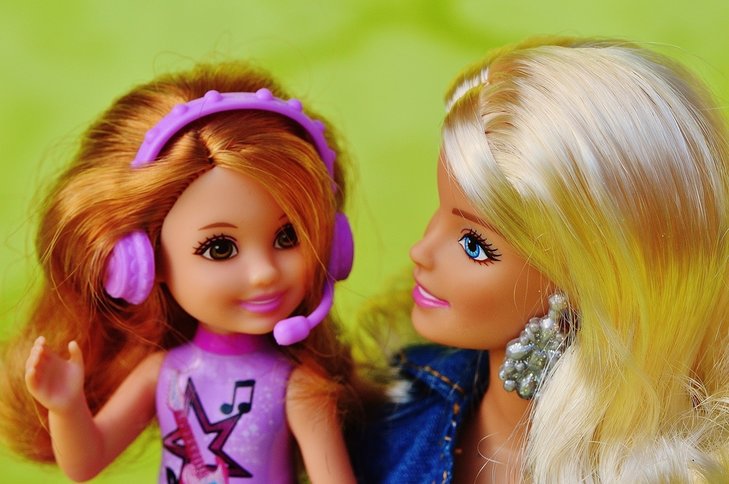
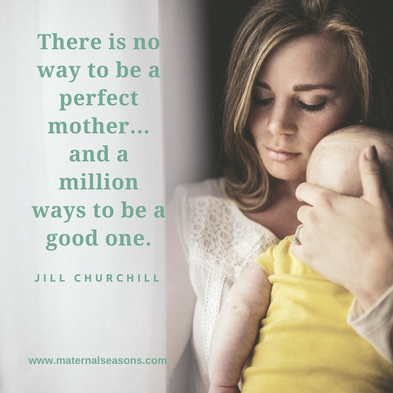

 RSS Feed
RSS Feed
